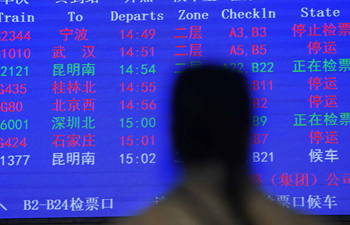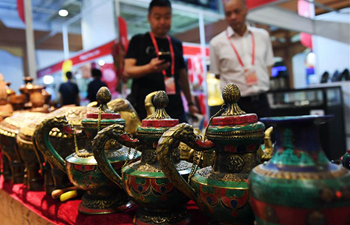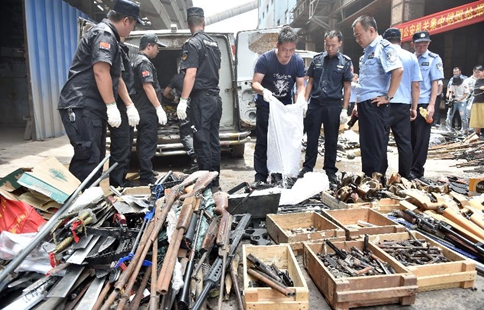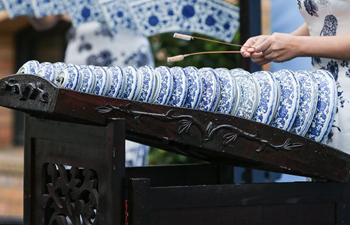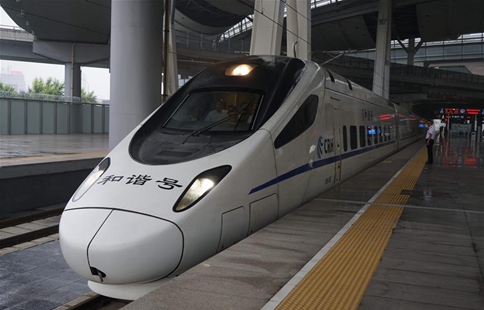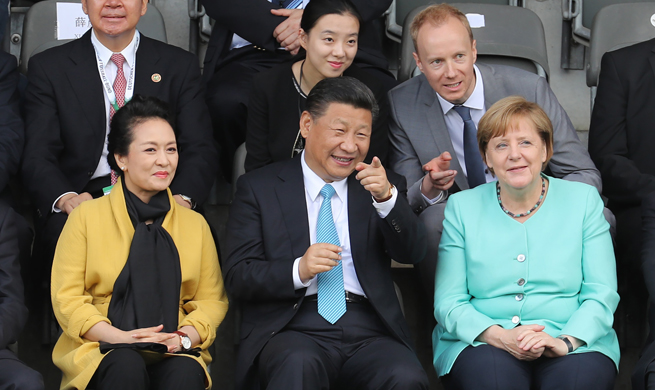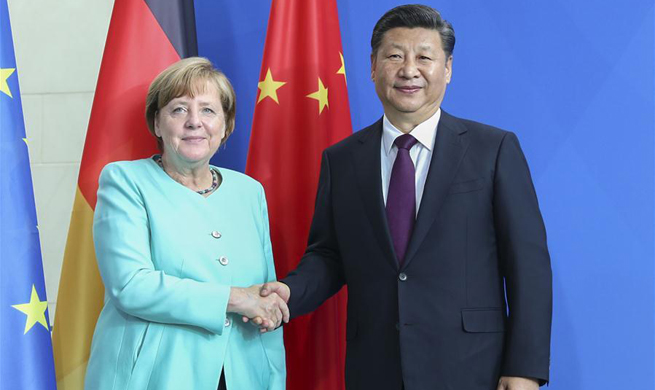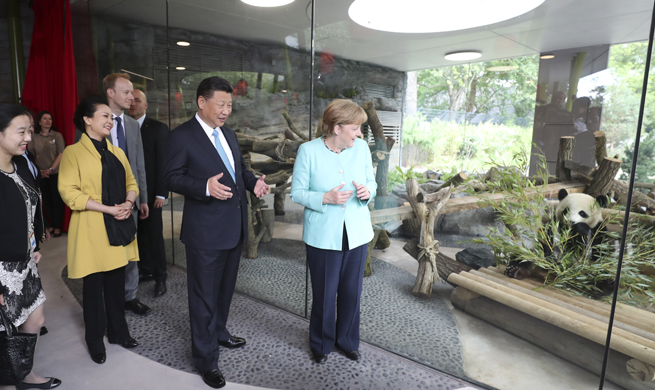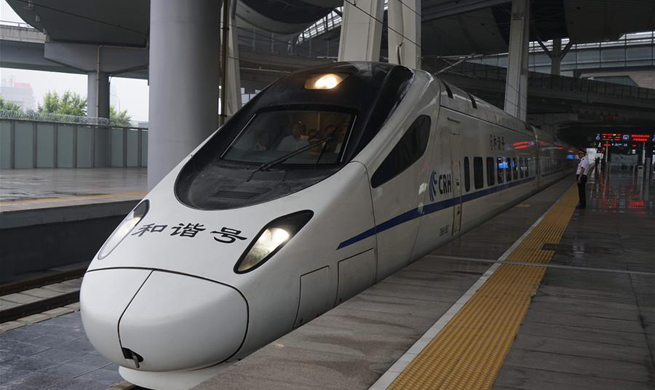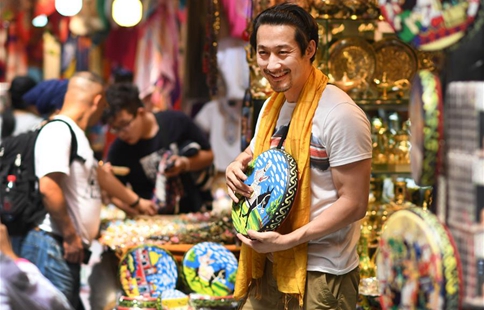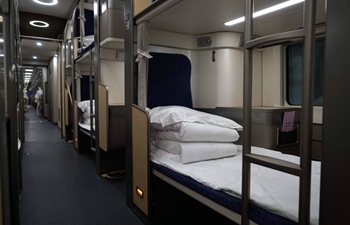by Burak Akinci
ANKARA, July 6 (Xinhua) -- Recent incidents in Turkey between locals and Syrian refugees have made headlines revealing anti-Syrian sentiments and reflecting problems in integration schemes in a country that has done more for Syrian refugees than any other country.
Several brawls, sometimes brutal, erupted in different towns such as Samsun, in the northwest on the Black Sea coast, where a gang of people tried to lynch two Syrian man allegedly taking pictures of women sunbathing.
In the capital Ankara, things got even worse and police had to use water cannons and tear gas to break up the fight between Turkish and Syrian groups.
After the TV channels and newspaper run the news, authorities tried immediately to calm things down.
"Occasional tensions erupting between Syrian refugees in Turkey and locals have recently been distorted and conveyed in an exaggerating way that would create indignation among the public," the Turkish Interior Ministry stated on Thursday.
In a written statement on its website, the ministry said the issue had been attempted to be turned into an element of instigation and domestic politics, explaining how the delinquency rate was low among the Syrians.
"The average annual rate of incidents that involved Syrians in the total public security incidents in Turkey between 2014 and 2017 is 1.32 percent," it said, adding that a majority of those incidents had been caused by disagreements among Syrian refugees.
It added that there was a five percent decrease in Syrians committing crime in 2017 compared to figures in the first six months of last year.
The incidents caused outrage in social networks where some users clearly expressed their resentment against the refugees while others accused them of racism against people who are in Turkey after having fled their war-torn country.
According to official figures, there are exactly 3,138,157 registered Syrians in Turkey since the war broke out in neighbouring Syria in 2011. However, experts think that thousands of unregistered Syrians are roaming Turkey. Only 7.5 percent (240,000) Syrians are living in camps. The rest are scattered all over Turkey. 240,000 Syrian babies were born on Turkish soil.
Also there are some 200,000 displaced Iraqis in Turkey who fled their country from the exactions of the Islamic State (IS) group.
Turkey is struggling with its limited resources to address this major problem and has announced having spend 25 billion U.S. dollars for the needs of refugees without any substantial international assistance. But the question of a real integration for the Syrians that Turkish authority prefers to name "guests" rather than refugees remains very tricky if not infeasible.
"Turkey is very late on this issue of integration. For years officials thought that those people would eventually return home in a couple of years, but this is not the case," said to Xinhua Metin Corabatir, an expert on immigration issue.
"The concept of integration is fairly new. The council on immigration policymaking has finally for the first time organized two meetings this year to think of ways to address the issue, but we are still learning," explained Corabatir.
In face of the mounting tensions, Turkish Prime Minister Binali Yildirim has warned that refugees who commit crimes will be deported from Turkey.
"Those who cross the line are punished as deserved before the law. If necessary we will even deport them," he told reporters on Thursday, calling also on Turkish citizens to avoid any altercations "that would cast a doubt on our hospitality."
Yildirim also dismissed rumors that an important number of Syrians will be granted citizenship, explaining that this privilege will be offered mostly to those having careers.
But the hospitality has also limits in some saturated neighbourhoods of Ankara where Syrians live in tens of thousands like the "little Aleppo" of the suburban and sensitive Yenimahalle district.
"Generally the mood here is peaceful but anytime there is the slightest tension between young people (Turkish and Syrians) on some trivial issue, things get out of hand," explained Murat, a Turkish young man, to Xinhua.
"The linguistic barrier is important. We do not speak Arabic and most of the Syrians don't learn Turkish. Maybe if we spoke the same language, there would be not so many fights," he said.
Experts think that for the past six years Turkish people and the government has done it at most in offering help and hospitality to the displaced Syrians, but that new measures are needed to prevent social conflicts.
"I think that minor incidents have been encountered in Turkey in regards to the Syrians. In any other country of the world, absorbing such big amounts of refugees in such short time would have been impossible," explained immigration expert and academic Murat Erdogan on CNNTurk news channel.
"Turkey is unfortunately taking this issue too lightly. There is still a lack of strategy towards the refugees. We should take these (social) incidents seriously and prepare a realistic strategy to address this question," said Murat Erdogan, pointing out that without a political resolution of the Syrian conflict, refugees are here to stay in Turkey and other countries where they went.
"The sacrifices made by Turkey and its people are very important, but we should not wait for Syrians to thank us for that every day. We should have a sound strategy to accommodate the Syrians in a rational manner giving them proper rights," he added.




